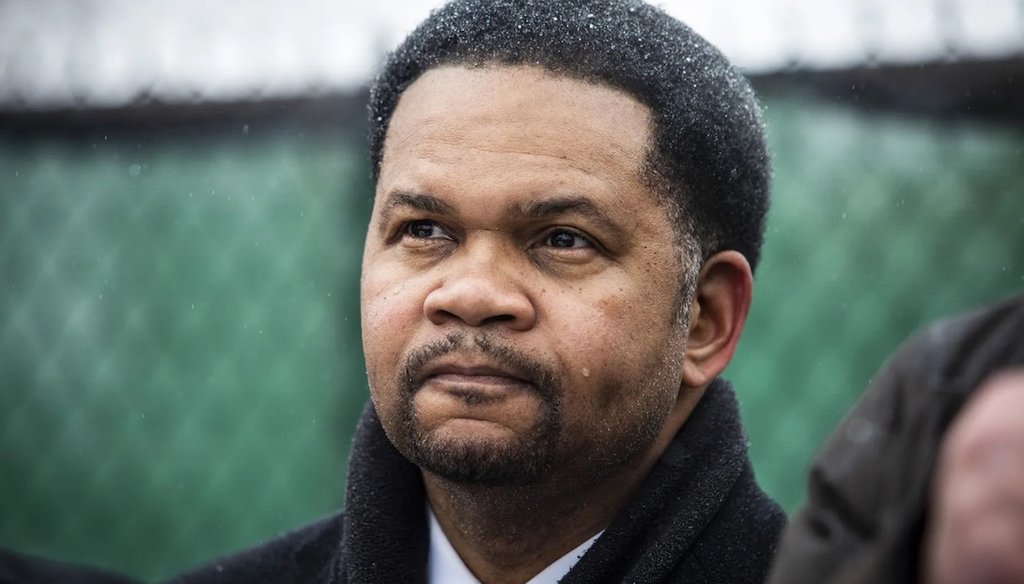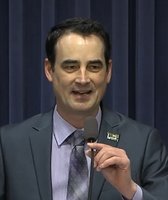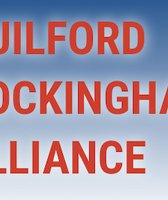Stand up for the facts!
Our only agenda is to publish the truth so you can be an informed participant in democracy.
We need your help.
I would like to contribute

Aurora Mayor Richard Irvin | Ashlee Rezin/Sun-Times
Aurora Mayor Richard Irvin says he reduced homicides by 40% his first year in office
If Your Time is short
-
Aurora Mayor Richard Irvin in a tweet last month claimed he reduced homicides by 40% during his first year in office. Experts say using percentages instead of actual numbers to describe crime trends is misleading.
Aurora Mayor Richard Irvin promotes a "tough-on-crime" mantra as part of his campaign for Illinois governor.
Since Irvin jumped into the GOP primary earlier this year, Democratic Gov. J.B. Pritzker and lawmakers have criticized Irvin for touting a crime-busting reputation while ignoring his 15 years of work as a defense attorney.
In a Feb. 20 tweet, Irvin said, "In my first year in office, Aurora homicides went down by 40%. While crime is exploding under anti-police politicians, I have suppressed crime in Aurora. Send me to Springfield and I’ll do the same thing across all Illinois."
We decided to check out whether Irvin’s claims at reducing homicides in one year stand up to his assertion he "suppressed crime" since taking office in May 2017.
Irvin, who has been mayor for five years, chose to compare the two years that reflect the largest downturn in homicides. Overall, however, homicides have fluctuated under his tenure.
According to the Aurora Police Department, six homicides were committed in Aurora in 2017 and four in 2018.
Eleni Demertzis, an Irvin spokesperson, said their team analyzed data from 2016 — the last full year before Irvin assumed office — and 2018 — the first full year after. In 2016, seven homicides occurred in the city of about 200,000 people. By data, she referred to a total of 11 homicides over two years.
"The number comes out to 43%, which we rounded down to 40%," Demertzis said, attributing the mayor’s "strong leadership" to a downturn in crime. She said he increased police budgets and added more officers.
Demertzis pointed to a 2021 study by WalletHub that rated Aurora as the sixth largest safe city in America.
But experts say it is both misleading and disingenuous to ascribe crime trends involving such low numbers, specifically homicide rates.
Ted Gest, founding partner of John Jay College’s Center on Media, Crime and Justice, said it would be difficult for any mayor to claim credit or take the blame for changes in crime rates in any period because data often fluctuates.
"It is sort of ridiculous for a mayor to say they lowered homicides by 40%," said Gest. "In this case, when the numbers are obviously very small, single digit numbers, why not just use the actual numbers?"
Using Irvin’s math, the homicide rate during his second year in office jumped by 200%, from 4 in 2018 to 12 in 2019.
Gest, who oversees daily news digest Crime and Justice News and authored Crime and Politics, a book about America’s explosion in crime rates, said it is unreliable to compare homicide rates from year-to-year especially with small numbers like Aurora’s. Any one event that results in multiple homicides can create a drastic change in the homicide rate.
Take the 12 homicides that occurred in Aurora in 2019. Five of the 12 total murders were connected to a single event — a shooting at the Henry Pratt Company.
Using exact numbers is especially important when considering other factors that impact crime trends. It can also be helpful to consider national crime, and in some cases, international crime, according to Wesley Skogan, a Northwestern University professor emeritus and member of the research faculty of the Institute for Policy Research.
For example, Skogan pointed to the 11 homicides that happened in Aurora in 2020 and said the high number was "perfectly in accord" with a national crime spike when the U.S. murder rate rose by 30% between 2019 and 2020.
Skogan echoed Gest and added that it is helpful to look at crimes that have a significant impact rather than measuring success based on small numbers.
"It would be more useful if civic leaders would focus on several crime categories which affect great numbers of residents in their community," Skogan said.
Unless Irvin could point to some very specific change and connect that to something specific that he did, it would be tricky to prove whether his actions helped reduce the number of homicides, Gest said.
Our ruling
Irvin claimed that he reduced the number of homicides by 40% during his first year as Aurora mayor.
There is only an element of truth in this claim: Homicides in Aurora dropped from six to four during Irvin’s first year as mayor. Experts say using percentages to describe the small fluctuations in the city’s homicide stats is misleading, and there is no proven connection to Irvin’s policies.
We rate this claim Mostly False.
MOSTLY FALSE – The statement contains an element of truth but ignores critical facts that would give a different impression.
Our Sources
Aurora Mayor Richard Irvin, "In my first year in office, Aurora homicides went down by 40%." February 20, 2022 tweet
Homicides committed in Aurora 2016 - 2021, Aurora Police Department
WalletHub Best- & Worst-Run Cities in America 2021 Study
Pew Research Center, "U.S. murder rate rose by 30% between 2019 and 2020" in an October 27, 2021 research article by John Gramlich
Browse the Truth-O-Meter
More by Analisa Trofimuk
Aurora Mayor Richard Irvin says he reduced homicides by 40% his first year in office
Support independent fact-checking.
Become a member!
In a world of wild talk and fake news, help us stand up for the facts.












































